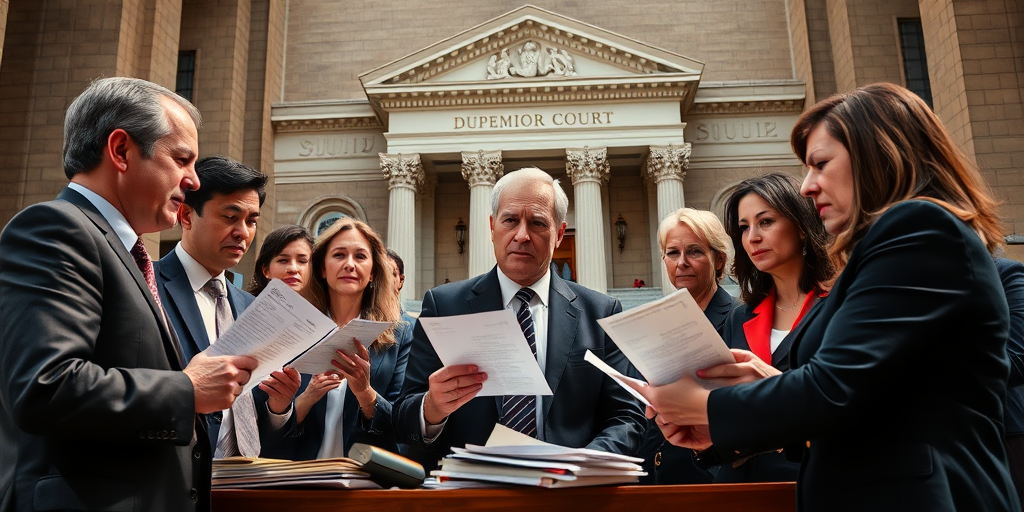Robby Starbuck Sues Google Over AI Defamation Claims
Robby Starbuck, an anti-diversity activist, has taken legal action against Google, alleging that the tech giant’s AI search tools have defamed him by linking him to sexual assault allegations and white nationalist Richard Spencer. The defamation lawsuit, filed in the Delaware Superior Court, sees Starbuck demanding $15 million in damages from Google.
A Pattern of Legal Battles
This lawsuit against Google is not Starbuck’s first entanglement with tech giants over artificial intelligence. In April, he engaged in a legal battle with Meta, claiming that its AI falsely connected him with the January 6th Capitol attack and a misdemeanor arrest. That case concluded with an unexpected resolution: Meta agreed to hire Starbuck as an advisor to help address “ideological and political bias” in its chatbot.
The lawsuit against Google highlights ongoing issues with AI-generated inaccuracies, raising concerns about the potential for these technologies to disseminate misleading information about individuals. Google has responded, indicating it plans to review Starbuck’s complaint once it’s received. A Google spokesperson noted that the allegations involve “hallucinations in Bard,” a known issue for large language models (LLMs) like the one cited in Starbuck’s lawsuit.
Implications for Legal Precedents
The legal landscape surrounding defamation cases involving AI is still uncharted territory in the United States. To date, no U.S. court has awarded damages in defamation cases involving AI chatbots, underscoring the nascent nature of legal frameworks governing AI technologies. Previous cases, such as conservative radio host Mark Walters’ lawsuit against OpenAI over ChatGPT’s alleged defamatory statements, have been unsuccessful due to the challenge of proving “actual malice.”
Legal experts, including Stanford University law professor Emily Wason, point out the complexities of these cases. “Proving malice with AI-generated output is challenging because the content is not directly authored by a human,” Wason explained. “The risks associated with AI-driven misinformation necessitate careful examination of liability and accountability.”
Local Impact and Community Concerns
In communities like the Rio Grande Valley, where residents have become increasingly reliant on digital technologies for news and information, the potential impact of AI-generated misinformation is significant. Misinformation can perpetuate stereotypes, incite division, and impact local decision-making processes. As such, the community interest in refining and regulating AI technology continues to grow.
Maria Gonzalez, a community organizer in the Valley, stressed the importance of vigilance and awareness. “Residents need to understand that not everything online is true,” she said. “We have to engage in digital literacy and educate ourselves and the younger generation about identifying and challenging misinformation.”
Addressing Broader Issues in the AI Sphere
Starbuck’s lawsuit is part of a broader discussion on AI ethics, notably the potential misuse of algorithms to propagate falsehoods that can damage reputations and livelihoods. As AI continues to integrate into various facets of life, ensuring ethical AI utilization is becoming a top priority for tech companies and policymakers alike.
Looking ahead, there are calls for enhanced regulatory frameworks. Some legal experts advocate for structured guidelines that clarify the responsibilities of companies deploying AI tools and establish clearer pathways for victims of AI-driven defamation to seek redress. The debate emphasizes the tension between innovation and regulations, highlighting the need for a balanced approach to foster technological progress while safeguarding individual rights.
Possible Outcomes and Future Actions
While the lawsuit remains under deliberation, analysts note that Starbuck may seek an influential role within Google, similar to his resolution with Meta. Whether the lawsuit succeeds on legal grounds may be secondary to Starbuck’s broader strategy of gaining influence over how AI technologies manage ideological and political biases.
Google, Meta, and other tech companies will likely pay close attention to the proceedings, as outcomes could inform future policy adaptations and compliance strategies. For Cameron County and the broader Valley community, such developments inform long-term considerations about technology adoption, digital ethics, and proactive community interest in safeguarding against technological abuses.
In the meantime, local residents with questions or concerns about AI-generated misinformation can seek guidance from consumer protection agencies or participate in forums aimed at fostering digital literacy. The ongoing dialogue around AI capabilities and responsibilities reminds us that as technology evolves, equitable and ethical engagement with these tools is essential to maximizing their potential while minimizing harm.







